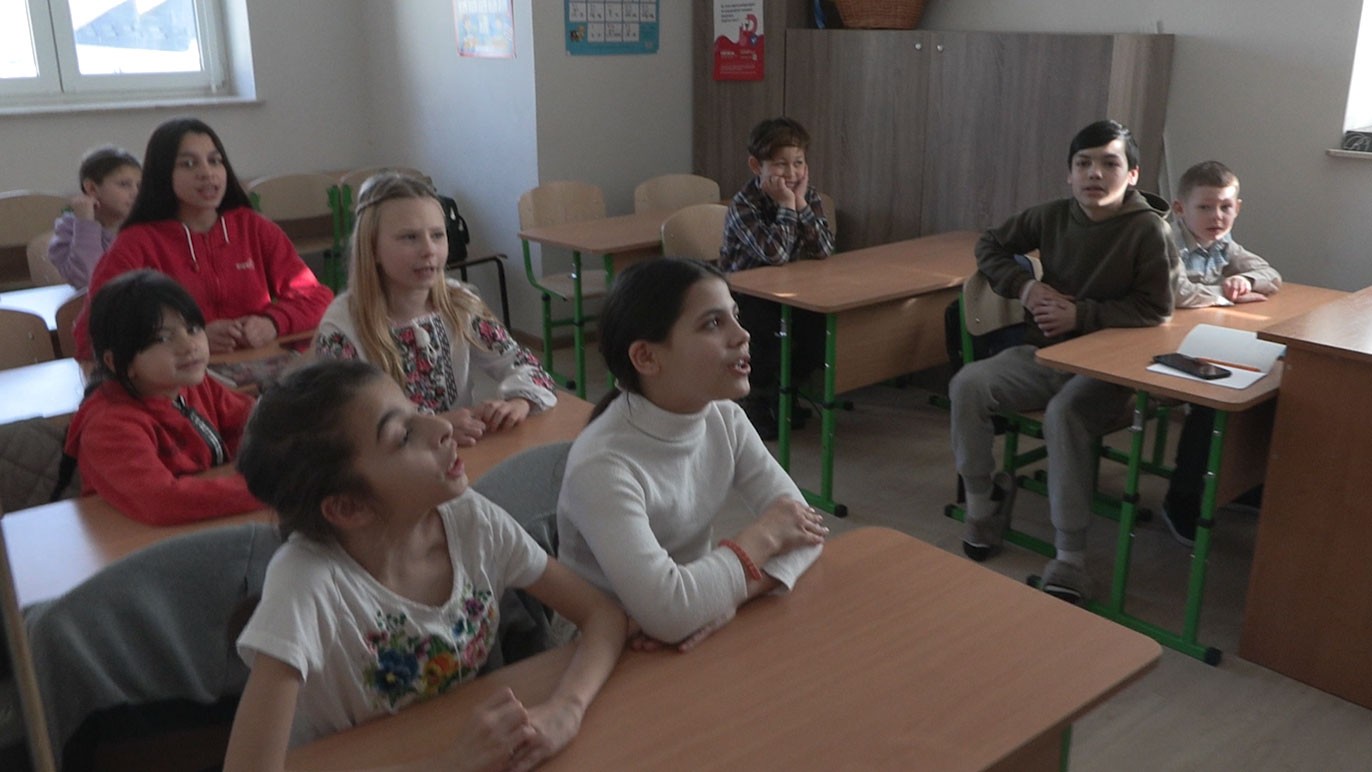Veneer of normality
At a cursory glance, life appeared little changed on the city's streets. Pedestrians came and went, some clutching take-out coffees, others walking their dogs, all contributing to a facade of normality.
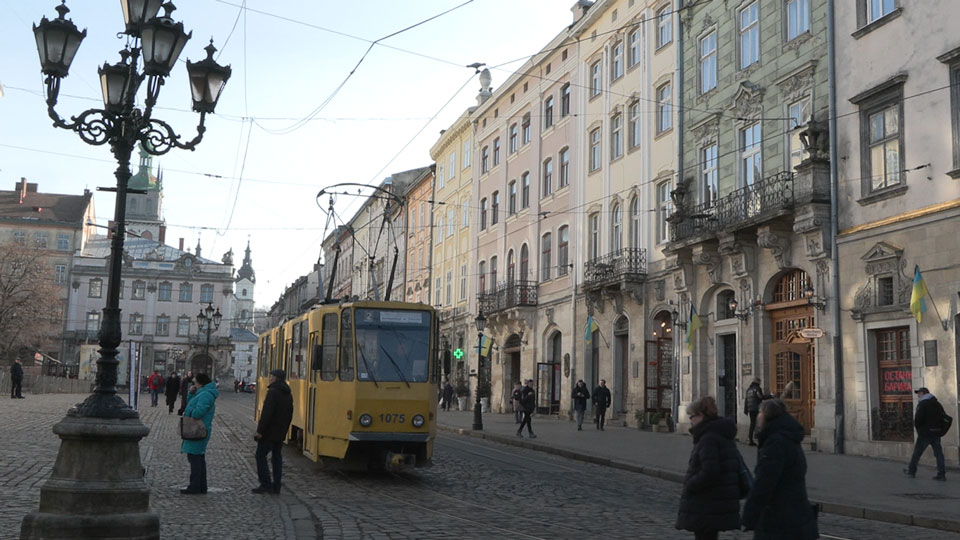
As we ventured further into the city, however, we noticed many buildings where people had boarded up the windows or blocked them with sandbags as protection against flying glass in the event of an aerial attack.
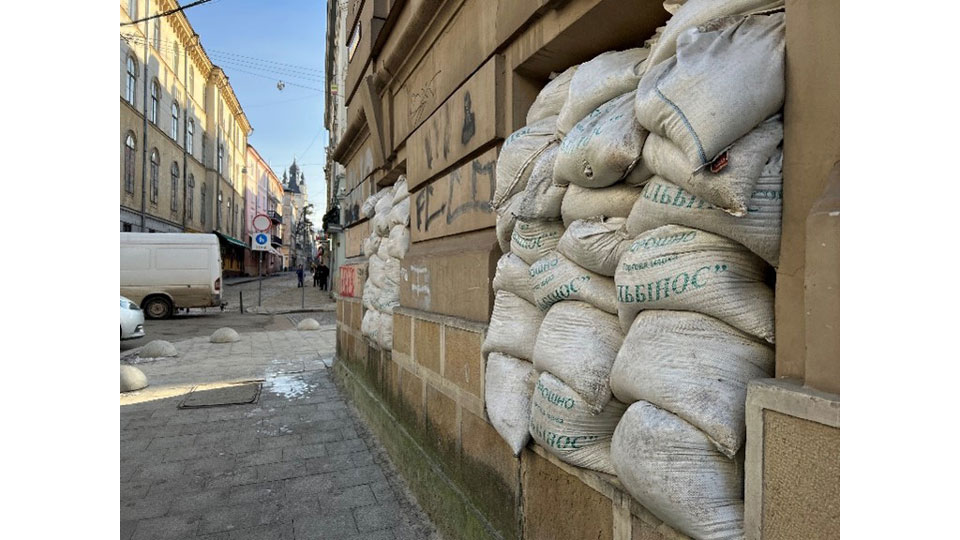
Almost every day, the haunting wail of air raid sirens would send people to shelter, a constant reminder of the threat hanging over the city.
Memorial to fallen soldiers
In front of the town hall were tributes to local soldiers killed in battle. Residents paused to read them, some murmuring prayers.
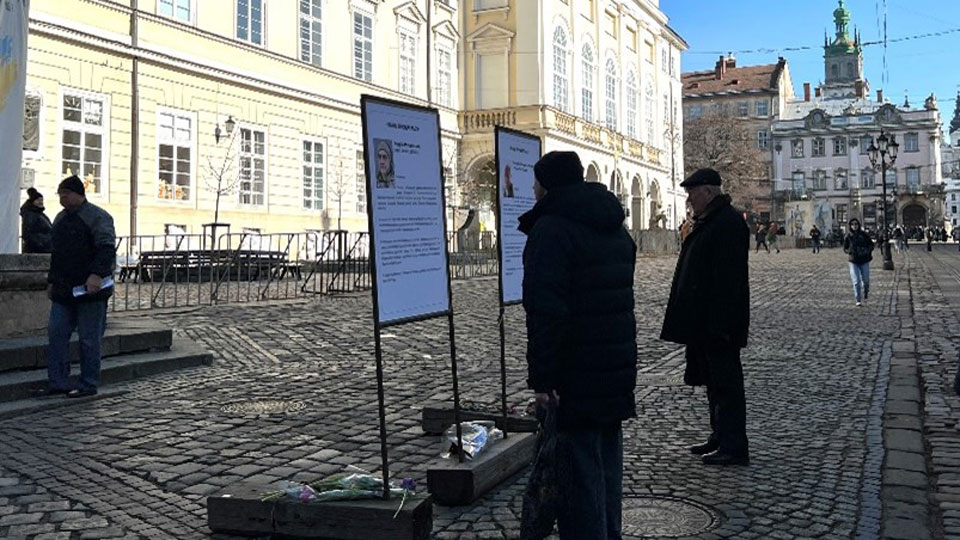
A temporary home
Lviv is a common destination for Ukrainians fleeing fighting closer to the border with Russia in the east. In January, the mayor told local media that the population had increased by roughly 150,000 since the start of the conflict.
At a church on the city's outskirts, dozens of people from across the country are sheltering from the fighting, their lives in limbo while the conflict continues. The priest, Gregory Draus, said the situation has taken an enormous toll on the adults, who are overcome with exhaustion, anxiety and grief. The children, outwardly active and healthy, are psychologically traumatized.
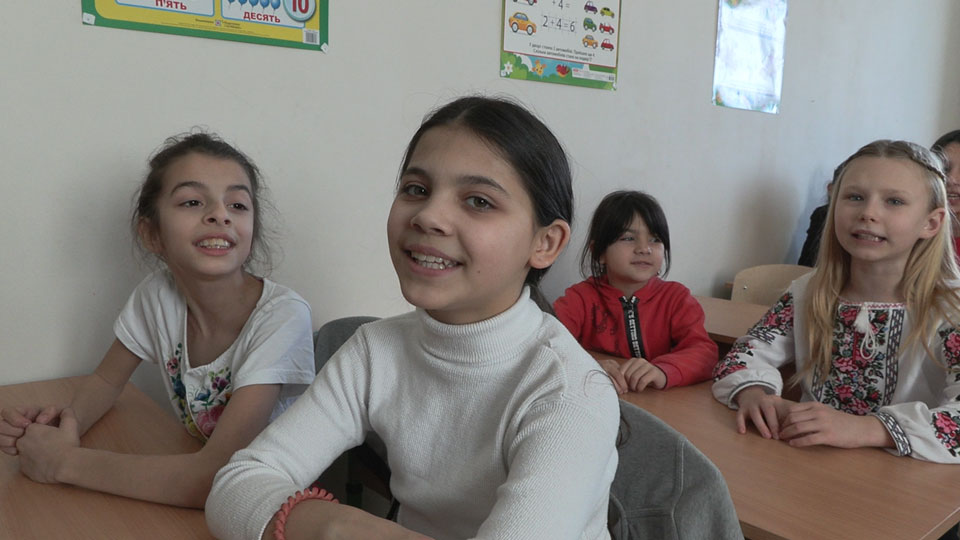
A 30-year-old woman who had spent eight months at the shelter said the experience had ground her down. "I just want the war to be over so I can go home."
Ready for another year of war

The church has put up a tent where it can feed as many as 3,000 people each day. Draus told us he wanted to be prepared for the worst. "I'm neither an expert in war, nor a politician," he said. "I don't know how long this will last. But we have to do what is necessary."
